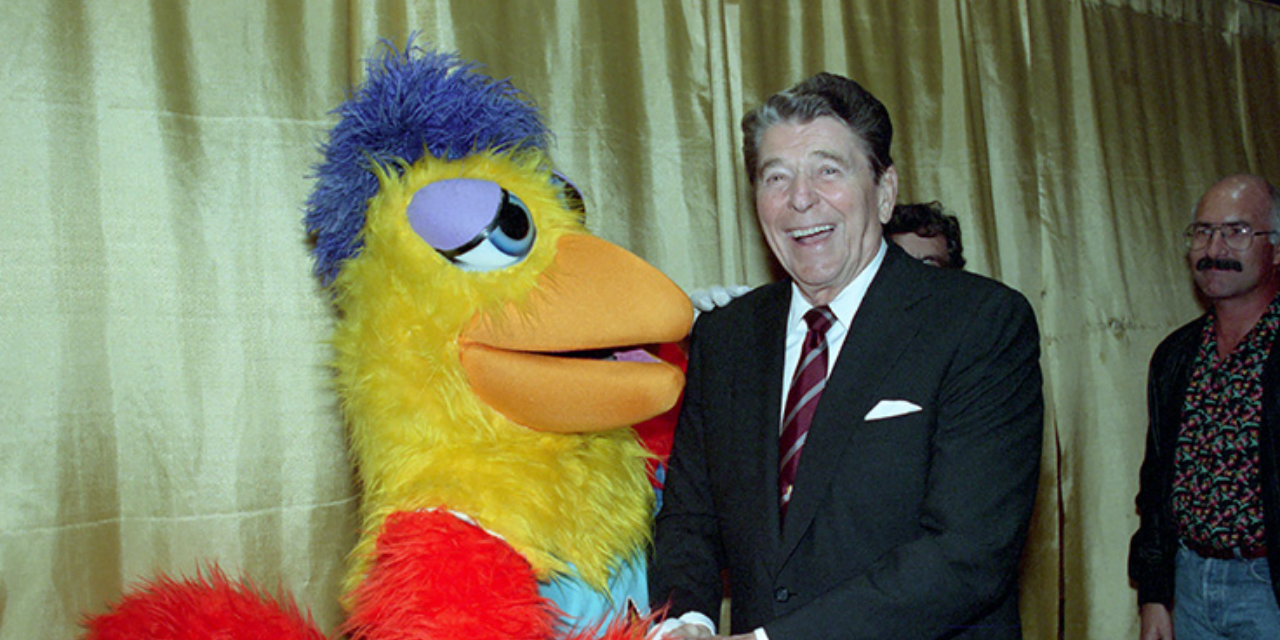President Ronald Reagan loved telling humorous stories. Here is one of many – post presidency and three years into his Alzheimer’s diagnosis:
Late on a rainy December morning in 1997, on the 34th floor of the Century City office building in Southern California, the 86-year-old former chief executive of the United States was gazing out a large window, looking down to a park across the street.
“Can I tell you a story?” he asked.
“Every now and then, I like to go down to the park and feed the birds. I was sitting on a park bench there one day when a little boy came up and sat beside me. He asked what I did for a living. I told him I was retired.”
“What did you used to do?” the boy pressed.
“I used to be President of the United States,” he responded softly.
The boy squinted, looking up with a curious gaze.
“Can I have some of your bread?”
The Gipper roared with laughter, as did everyone else in his office that morning.
You would be hard-pressed to find a president who used humor as effectively as our fortieth. A former actor and speaker, the “Great Communicator” knew that laughter put people at ease and made everyone feel better about themselves. His wit added warmth and helped bond him to the American people like few other leaders.
“A sense of humor is part of the art of leadership, of getting along with people, of getting things done,” said President Dwight D. Eisenhower. I think he was right.
In times of stress and strain, humor and laughter are like a balm on a burn. When the writer of Proverbs suggested that laughter was “good medicine” (17:22) he wasn’t joking. Modern science confirms that laughter improves oxygen intake, relieves pain, improves the immune system, reduces depression and naturally elevates our mood, to name just a few physiological benefits.
Yet, America seems to be suffering from a serious deficit of good humor and laughter.
By “good humor” I’m talking about the kind that lifts up, doesn’t tear down. I’m referring to the clean, the wholesome and the clever.
The best humor comes when we laugh with others – and not at someone else’s expense.
Healthy people know how to laugh. They don’t take easy offense. They take issues seriously, but not themselves.
In the midst of the bloody Civil War, Abraham Lincoln’s wit and good humor helped sustain both himself and the fractured country.
To a White House usher, he once replied, “If this is coffee, please bring me some tea; but if this is tea, please bring me some coffee.” Conscious of his own gangly looks, the sixteenth president once admitted, “After forty, every man gets the face he deserves.”
As tensions rise and important ideological divisions grow ever wider, we would be wise to take a big deep breath and look for the brighter side of the dark times. Make a conscious effort to find some humor in even the more difficult circumstances of life.
C.S. Lewis was right when he wrote, “Humor is the all-consoling and the all-excusing grace of life.”
Enjoy today – don’t just endure till tomorrow.
Photo from Reagan Library.






